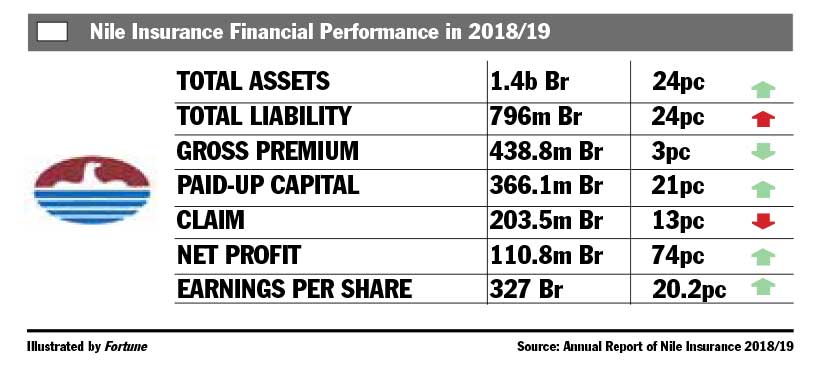
Nov 16 , 2024
By Eden Sahle
For many women, becoming a mother is a transformative experience that reshapes our priorities, self-perception, and connection to our bodies. As I celebrated my daughter’s first birthday this weekend, I felt immense gratitude for the blessings of motherhood. However, family and friends seemed most captivated by a particular transformation I have undergone over the past year: shedding the 30kg I gained during pregnancy.
The journey to regain my strength and energy was not a simple “bounce back.” I initially felt a strong disconnect with my body—each movement seemed weighed down, and I found even routine tasks exhausting. Despite my husband's reassurances, I struggled to recognise myself in the mirror. I was also surrounded by well-meaning narratives of quick post-pregnancy recoveries, which made the experience even more difficult. Studies on postpartum experiences reveal that these physical and emotional struggles are common, and many new mothers find themselves wrestling with similar body-image shifts and unexpected physical changes after childbirth.
My goal was to regain strength and feel comfortable in my skin. With an approach grounded in mindful eating, I balanced my meals, making sure they were satisfying yet aligned with my health goals. A study in Obesity Reviews found that postpartum women who focused on balanced eating and sustainable physical activity had improved health outcomes and experienced fewer setbacks in weight management compared to those following restrictive diets.
As part of my routine, I embraced weight training, jump rope, and ab exercises. Weight training, in particular, not only helped me shed weight but also restored my energy levels. The research underscores that postpartum exercise, especially strength training, can help rebuild muscle and improve metabolism, leading to sustainable weight management and improved mental well-being. The shift was not easy—I usually felt sore and questioned my determination. But with my husband’s encouragement, exercise evolved from a chore to a cherished part of my day.
Friends and family noticed the change, especially as I could carry my daughter effortlessly, even as she grew. Everyday chores also contributed to my energy output. When we paused having house help, I realised the extra movement added up. Research in "The Journal of Physical Activity and Health" confirms that such everyday physical activity can seriously impact weight and overall fitness, especially for those who may not have time for structured workouts.
Some friends asked how I managed to lose weight while still enjoying sweets and hearty meals, wondering if my transformation was as effortless as it appeared. Others speculated if surgery played a role in “bouncing back.” But I have come to learn that weight loss is never a one-size-fits-all journey. Genetics, metabolism, and especially hormones all influence each individual’s experience. For instance, hormones like leptin, which regulate appetite and energy balance, play a critical role. Studies show that conditions like leptin resistance can interfere with weight management, causing the brain to underestimate fullness and drive the body to store more fat.
A close friend of mine, despite a rigorous exercise regimen, struggled with her weight due to a hormonal imbalance. Once she received appropriate treatment to regulate her hormones, she began to see progress. Her experience displayed the complex interplay between biology and weight loss, which is usually overlooked in mainstream discussions about fitness and postpartum recovery.
PUBLISHED ON
Nov 16,2024 [ VOL
25 , NO
1281]

Featured | Jan 07,2023

Viewpoints | Sep 28,2019


Fortune News | Dec 12,2020

Fortune News | Jul 25,2020

My Opinion | Jan 07,2022

Radar | Mar 12,2022

Radar | Jan 22,2022

Fortune News | Mar 23,2019

Fortune News | Dec 21,2019

My Opinion | 132151 Views | Aug 14,2021

My Opinion | 128561 Views | Aug 21,2021

My Opinion | 126482 Views | Sep 10,2021

My Opinion | 124091 Views | Aug 07,2021





Dec 22 , 2024 . By TIZITA SHEWAFERAW
Charged with transforming colossal state-owned enterprises into modern and competitiv...

Aug 18 , 2024 . By AKSAH ITALO
Although predictable Yonas Zerihun's job in the ride-hailing service is not immune to...

Jul 28 , 2024 . By TIZITA SHEWAFERAW
Unhabitual, perhaps too many, Samuel Gebreyohannes, 38, used to occasionally enjoy a couple of beers at breakfast. However, he recently swit...

Jul 13 , 2024 . By AKSAH ITALO
Investors who rely on tractors, trucks, and field vehicles for commuting, transporting commodities, and f...

Jul 12 , 2025
Political leaders and their policy advisors often promise great leaps forward, yet th...

Jul 5 , 2025
Six years ago, Ethiopia was the darling of international liberal commentators. A year...

Jun 28 , 2025
Meseret Damtie, the assertive auditor general, has never been shy about naming names...

Jun 21 , 2025
A well-worn adage says, “Budget is not destiny, but it is direction.” Examining t...

Jul 13 , 2025 . By YITBAREK GETACHEW
The Addis Abeba City Revenue Bureau has introduced a new directive set to reshape how...

Jul 13 , 2025 . By BEZAWIT HULUAGER
Addis Abeba has approved a record 350 billion Br budget for the 2025/26 fiscal year,...

Jul 13 , 2025 . By RUTH BERHANU
The Addis Abeba Revenue Bureau has scrapped a value-added tax (VAT) on unprocessed ve...

Jul 13 , 2025 . By NAHOM AYELE
Federal lawmakers have finally brought closure to a protracted and contentious tax de...